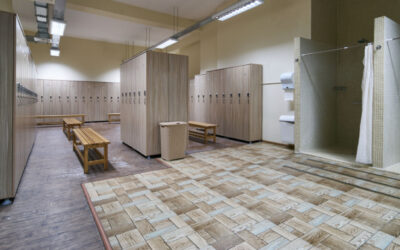By Brian Anderson |
“The debate debacle continues this morning,” the TV anchor said, laughing. “The never-ending story of Democratic candidate Katie Hobbs choosing not to debate her opponent, Kari Lake.”
That’s what Arizona voters heard last week as they woke up and turned on one of Phoenix’s most popular morning news programs. They’ve been hearing it for months.
Hobbs’ refusal to debate Lake, the Republican nominee, has become the defining story of the gubernatorial race, one that started out as a 20-year precedent-breaking decision and has morphed a larger-than-life narrative about the Democrat’s political judgment and skittishness, with multiple left-leaning media outlets, from MSNBC and The View to the Arizona Republic and the New York Times, all asking the same question: What in the world is she thinking?
Hobbs claims it’s because her opponent is too far to the right. In reality, her national headline-making stage fright has been going on for much longer than the general election.
It began in April when Hobbs declined to participate in a June 30th debate with her Democratic primary opponent Marco López, the former mayor of Nogales and chief of staff at U.S. Customs and Border Protection under President Barack Obama. With one exception, Hobbs was the only statewide candidate in Arizona who declined. López used light political pressure hoping to change her mind — he’d often ask the crowd: “¿Dónde está Katie?” — but, when approached by the local press in May, Hobbs’ campaign claimed that she had (conveniently) scheduled “multiple events in Tucson” on June 30th and couldn’t make the two-hour drive back to Phoenix.
López understood. So, he wrote a letter to the Citizens Clean Elections Commission, the government body that organized the debate, granting it permission to “reschedule the debate to a time and date that fits into the Secretary’s busy schedule” over the next 40-plus days. Hobbs declined to reschedule.
When June 30th arrived, a local reporter reached out to Hobbs for comment on her absence. She must have been pretty busy that day, what with “multiple events in Tucson.” But why were no photographs posted online? Oh, about those events, her campaign responded … um, they were canceled. The candidate had come down with a (convenient) case of COVID.
Three days later, Hobbs was spotted, mask-less, waving a flag at a crowded parade in Flagstaff. A superb immune system, indeed.
It wasn’t long after the general election began that Hobbs announced she would not be debating Lake, either. Instead, the Democrat demanded separate one-on-one TV interviews — but that’s not how the Clean Elections process works. Candidates who bow out are not rewarded for doing so. Hobbs insisted that Lake would create a spectacle if the debate format were not right, so the Commission held a formal meeting to appease her, during which its chairman asked her campaign manager point-blank: “Is there any scenario where Ms. Hobbs will share the stage with Ms. Lake in a debate?”
She dismissed his “hypothetical” question and refused to offer an alternate format, and the Commission ruled that the October 12th debate would go on with or without the Democrat in attendance. (Lake said that her opponent was free to change her mind at any time.)
The morning of October 12th, Hobbs joined MSNBC for a softball segment … a little too soft. Because Hobbs got a little too comfortable and accidentally blabbed to the host, as if in the middle of a private conversation, that “PBS is also giving me the same format that Kari Lake has.”
Oops. That secret arrangement wasn’t supposed to come out until after Lake’s interview that evening.
You see, Arizona PBS is the Commission’s official broadcast partner, a relationship that provides the station with unique access to high-profile debates in exchange for complying with the Commission’s rulings when candidates disagree. It turned out that Arizona PBS had struck a side-deal with the Hobbs campaign to shoot and air the one-on-one interview she’d been begging for, right as voters received their early ballots.
The Commission had no clue that the station violated its agreement — and wouldn’t have until it was too late, had Hobbs not accidentally revealed it on live TV. The Commission was forced to cancel the long-planned debate with hours to spare in order to find a new broadcast partner it could trust. In response, Lake held a press conference condemning Arizona PBS’ “backroom deal” with Hobbs, which a source informed her was made at the behest of Michael Crow, the politically connected and contentious president of Arizona State University. (ASU owns and operates Arizona PBS.)
Approached for comment the next morning, Crow denied directing the backroom deal with Hobbs but acknowledged that “he let his preference be known” to the station (which I am certain Arizona PBS interpreted in the exact way that Crow meant it). The Commission’s executive director described himself as “bewildered” by Crow’s political meddling — casting him as “the most powerful man in Arizona” other than the governor — and decried the appearance that “ASU was playing favorites with the candidates.”
Much like Crow, Mi-Ai Parrish, a managing director at ASU who helps oversee Arizona PBS, also “wouldn’t say who made the call to invite” the Democrat. Hobbs herself is similarly claiming now that “I wasn’t involved in those conversations” with ASU — which, again, is a strange series of denials coming from several people who insist they did the right thing.
A Republican state legislator has already announced plans to file a bill that will strip the state’s ties to Arizona PBS as a result of it circumventing the Clean Elections ruling. And, unfortunately for ASU, it doesn’t appear that Hobbs will be in a position to veto it.
Outside of vomiting on herself on-stage, I cannot fathom a single humiliation Hobbs could have endured in a 30-minute debate that would have been worse than the six-month headache of negative headlines her refusal has caused. Two separate polls released this month reflect that reality, finding that the Republican nominee enjoys a 3-point lead heading into Election Day, with even CNN’s Dana Bash acknowledging Monday that “the fact that [Hobbs] won’t debate has given Kari Lake a very wide opening.”
At the end of the day, Arizonans vote for who shows up — and, so far, Katie Hobbs hasn’t.
Brian Anderson is founder of the Saguaro Group, an Arizona-based political research firm.








